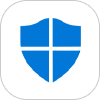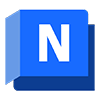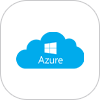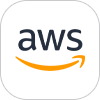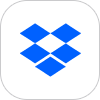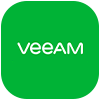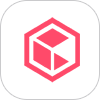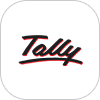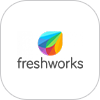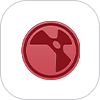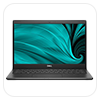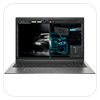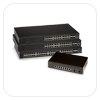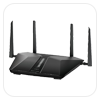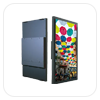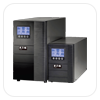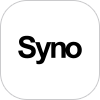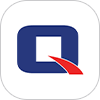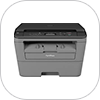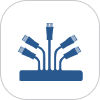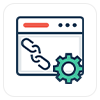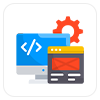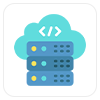
The first line of defense is always a good firewall. Analytically selecting the ideal one to protect your networks might, therefore, seem impossible. Currently, we are given the privilege of having the three giants in the firewall market: Fortinet, Cisco, and SonicWall. Getting to know the strengths, weak points, and best use for these three will assist you in making the choice as to which one will best safeguard your business.
| Features | Fortinet | Cisco | SonicWall |
| Flagship Firewall Series | FortiGate | Cisco Firepower/ASA | TZ, NSa, NSsp Series |
| Security Features | NGFW, SD-WAN, IPS, SSL inspection, sandboxing | NGFW, AMP, IPS, SSL inspection, threat intel | NGFW, IPS, content filtering, DPI-SSL |
| Performance | High performance with purpose-built ASICs | Strong performance, relies on CPU architecture | Competitive, optimized for SMB to mid-size |
| Ease of Use | FortiOS – intuitive, centralized via FortiManager | Steeper learning curve (Cisco IOS/Firepower Mgmt Center) | User-friendly GUI and simplified deployment |
| Deployment Flexibility | On-premises, virtual, cloud, hybrid | On-premises, virtual, cloud | On-premises, virtual, cloud |
| Integration Ecosystem | Strong (Fortinet Security Fabric ecosystem) | Strong (Cisco SecureX, Umbrella, etc.) | Moderate; works best within SonicWall tools |
| Target Market | SMB to Enterprise | Enterprise, Large Organizations | SMB to Mid-Market |
| Pricing | Competitive, value-oriented | Premium-priced | Budget-friendly, especially for SMBs |
| Support & Updates | Reliable support, frequent updates | Strong enterprise-grade support | Good support with various tiers |
| Cloud Support | FortiGate VM, FortiSASE, integration with AWS, Azure, GCP | Firepower NGFWv, Umbrella, integration with AWS, Azure | Cloud App Security, NSv firewall for virtual |
| Unique Selling Point | Custom security ASICs for better performance | Deep enterprise integration and threat intelligence | Affordable security with solid features |
Fortinet
Fortinet has managed to excel at high-performance firewall solutions by incorporating a wide array of security functions. Their FortiGate product line is renowned for its performance, threat knowledge, and integrated Security Fabric ecosystem.
Key Strengths:
Unparalleled Performance: The FortiGate firewalls, which in most instances are driven by purpose-designed security processors, are the fastest in throughput and render security not a wall in front of the network. FortiGate 100F models, for example, support Gigabit speeds.
Advanced Security across the full spectrum: Fortinet NGFWs have a wide range of security services such as IP application control, anti-malware, web filtering (FortiGuard Web Filtering Service), and SSL inspection.
AI-Based Threat Intelligence: Fortinet applies AI and machine learning by way of FortiGuard services to repel threats in real-time, both known and unknown: this includes AI-Sandboxing that inspects further suspicious files.
Security Fabric Integration: This is a huge advantage since the firewall talks to and exchanges threat information with other Fortinet security solutions towards an organized, automated defense system.
Secure SD-WAN: SonicWall’s newer models come with Secure SD-WAN capabilities, providing low-cost wide area network optimization.
Centralized Management: Fortinet offers centralized management tools such as FortiManager, thus making it easier to manage several firewalls and security devices.
Potential Weaknesses:
- Highly customized configurations might be hard to handle for some users and can necessitate technical expertise.
- Although equal in price, the variety of models and types of licenses can sometimes make for a confusing experience when selecting.
Ideal For: Performance-oriented businesses that operate in a highly integrated security ecosystem without compromise on security and, therefore, have advanced threat protection and secure SD-WAN features. Fortinet’s scale-up capability also provides it with the advantage of scaling up with SMBs.
Cisco
Cisco, a networking leader for many years, secures its firewall products differently with Cisco Secure Firewall and cloud-managed Meraki MX series. It has been known for its robust security features and reliability, and is gaining more strength with cloud-based management.
Key Strengths:
Advanced Security Features: Cisco Secure Firewalls provide an absolutely powerful threat defense feature along with application visibility and control, advanced malware detection, instrumentation, and URL filtering. The most remarkable one is the threat intelligence from Cisco Talos.
Cloud-Simplicity (Meraki): The Meraki MX series is unique in its emphasis on an easy-to-use cloud-managed service. A centralized dashboard allows administrators to easily deploy, configure, and monitor not just their firewall but also any other Meraki networking devices.
Integrated SD-WAN: The Meraki MX series is equipped with robust SD-WAN features for better network connectivity and application performance.
Granular Application Control: Cisco firewalls are able to drill deep into the application layer of network traffic so as to achieve finely grained control of application use.
Flexible VPN Choices: Cisco ASA and Meraki MX offer diverse VPN options, such as site-to-site and remote access, that ensure reliable connections for remote employees and branch offices.
Potential Weaknesses:
- Cisco’s traditional firewall licensing can be viewed as complex and expensive, with some features requiring an additional license.
- Meraki is simple and easy to configure, but the cloud-managed security appliance might prove unsatisfactory for organizations with highly complex or granular security requirements.
Ideal For: Businesses needing robust, enterprise-grade security, especially if immersed within the Cisco ecosystem. The Meraki line is particularly suited for SMBs where ease of management and cloud orientation are the priority. Cisco’s offerings are also worthy of organizations with distributed networks requiring a reliable SD-WAN.
SonicWall
SonicWall has long remained the pick for SMBs trying to attain a combination of security features and reasonably priced solutions. Their TZ Series and NSa Series firewalls offer easy-to-navigate interfaces with a strong array of UTM capabilities.
Key Strengths:
Robust UTM Features: Essentially, SonicWall firewalls incorporate firewalls, VPNs, intrusion prevention systems, gateway anti-virus, anti-spyware, and content filtering, which are all perfectly bundled to simplify it for the user.
Deep Packet Inspection (DPI): SonicWall’s engine conducts detailed traffic analysis using RFDPI without causing any performance degradation.
Easy to Use: From the user interface viewpoint, SonicWall has been praised for possessing a user-friendly GUI that is easy to use and appropriate for non-security experts in businesses.
Secure SD-WAN: SonicWall’s latest models include Secure SD-WAN features, offering low-cost optimization of wide area networks.
Value Proposition: In general, SonicWall is perceived to have a high level of security, but at a competitive price, making it extremely attractive to the SMBs considering budgets.
Potential Weaknesses:
- Certain potential security vulnerabilities might be argued here, and there is some debate regarding certain purportedly less advanced deployments of advanced threat prevention than the high-end offerings of Fortinet or Cisco.
- Cloud management might be argued to be less mature or feature-rich than the cloud-first strategy of Cisco Meraki.
Best For: Small to medium-sized enterprises with advanced security requirements without the burden of cost and complexity of a handful of enterprise vendors. SonicWall achieves a balance for organizations that need maximum security features without incurring the cost and complexity of a handful of enterprise providers.
Which Firewall is Best for Your Business?
The “best” firewall is never an across-the-board answer. It all depends on the specific needs, concerns, level of expertise, and budget of your business.
Choose Fortinet when: You desire the best in performance, security ecosystem integration, and threat protection, and you can factor in the potential for a more challenging learning curve for advanced setups.
Choose Cisco (particularly Meraki) when: It is a fantastic management and cloud-first strategy, or if you are heavily invested in the Cisco ecosystem. In the event of extremely robust enterprise-grade security, you would seriously want to look at the Cisco Secure Firewall.
Choose SonicWall when: You’re an SMB seeking a comprehensive UTM solution that’s user-friendly and offers a strong value proposition.
In 2025, all three vendors will continue to innovate, offering increasingly sophisticated security features and more flexible management options. Carefully assess your organization’s requirements and consider a demo to see which firewall best fits your business. The right choice will provide not just security, but also peace of mind in an increasingly dangerous cyber landscape.





